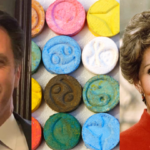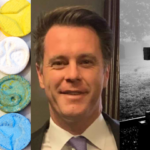NSW Government is Fine with Placing Young Lives at Risk This Mardi Gras

The use of condoms and greater access to them was a prominent issue in 1980s Australia, as the HIV/AIDS epidemic was worsening, as was the need for clean needles and syringes for people who inject drugs, which again had the aim of stopping the spread of the deadly bloodborne virus.
Both campaigns on the part of medical practitioners, sex workers and people who use drugs were confronted with moral resistance from authorities, despite condoms and the practice they protect being legal. And both campaigns triumphed, even though drugs used in syringes are unlawful.
For some reason though, most Australian jurisdictions continue to refuse pill testing, which allows the checking of drugs for toxicity. And this unwillingness to allow the provision of checking services because those substances are illegal, flies in the face of lawful needle and syringe exchanges.
NSW premier Chris Minns, who, prior to the last election promised drug law reform, was presented with an open letter from harm reduction experts, lawyers and doctors last September, calling on him to roll out pill testing ahead of the summer music festival season. But the Labor leader refused.
So, as Sydney looks towards the kick off of the 46th Gay and Lesbian Mardi Gras, festivalgoers will again be left to consume illicit drugs without testing services, all because the NSW Labor leader prefers to look tough, not permissive, on drugs, as opposed to appearing keen on saving young lives.
Testing is better than bareback
“I know they want me to change our policy today, but I’m not going to do that,” Minns told Nine News last September, on receiving the open letter. “The pill testing regime is only in place in one jurisdiction in the country and that’s the ACT. No other state has adopted similar changes to policy.”
That the ACT has been testing pills at a Canberra fixed site drug checking service since mid-2022, is a triumph of reason over the type of skewed logic applied by Minns and other NSW major party politicians when they get into a position to make a difference on drug law reform.
As for no other jurisdiction, then Queensland health minister Yvette D’Ath announced, just prior to NSW Labor taking out the March 2023 election, that her state has determined to trial pill testing. And proposals for two fixed sites and one mobile service were being discussed last September.
The NSW premier also told the press that “the truth is, there’s no safe quantity to take of these illegal substances”. And whilst this sounds reasonable as it’s uttered briefly on the nightly news, the truth is it is safer to take a lightly dosed MDMA cap than one that is cut with deadly substances.
If Mardi Gras was held in Canberra, festivalgoers could attend the CANtest facility, and have their drugs checked.
And another key point is that testing doesn’t encourage drug taking. In fact, a lot of punters throw out their drugs in amnesty bins, after having chosen not to take them post-testing.
“It might be overconsumption of that substance, rather than it being a dangerous element that’s been added to the drug,” Minns continued. “I don’t want to be in a situation where people believe, because there’s the absence of compromised drugs, that they’re safe to take when they’re not.”
However, drug checking services can ascertain whether, say, an MDMA cap has an extremely high dose and warn the owner about this.
And while it’s true that pill testing is no silver bullet, and those using a drug checking service can still suffer drug harms, the same can be said for those using condoms, as they can break and this can potentially lead to a HIV infection, yet still people wear and trust in rubbers.
And in further response to the premier’s concerns, there are trained medical staff using laboratory equipment at drug checking services, who not only deliver the results of the drugs to would-be consumers, but they thoroughly explain the danger around taking doses too high or otherwise.
Testing saves lives
The final evaluation of the six month initial trial period of the CANtest facility found of 227 drug samples expected to be MDMA, only 178 were the substance also referred to as ecstasy. Some of these MDMA samples were mixed with sucrose, while others were mixed with different drugs.
The service further saw one in ten clients dispose of their drugs on site, after they’d been tested, and their owners understood what was in them. And this also refutes the claim of conservative politicians who insist that services encourage drug use.
Disinformation about pill testing has been easy to propagate, which is why the Canberra drug checking service is so significant, as its local proof that can’t be refuted, as, despite a wealth of European evidence, the claim there no proof was former premier Gladys Berejiklian’s favourite line.
Four-hundred and ninety-eight Canberrans utilised the CANtest service over its first six months in operation, and of those, 70 percent reported not having spoken to a health professional about their drug use in the past. And these discussions saw 10 percent of people ditch their drugs afterwards.
Outliers in harm reduction
Uniting’s Fair Treatment campaign circulated a NSW Health warning about a dodgy batch of pills circulating on 2 February. This saw pills with a Red Bull symbol being sold as MDMA but containing none. Instead, they were comprised of nitazene: a highly potent opioid, easy to overdose on.
The tired NSW drug policy, fostered by Coalition premiers and perpetuated by Minns, prefers to see deadly drugs circulating in the community with no way for consumers to test them, rather than give them the opportunity to find out if the drugs they’ve bought blind might be deadly.
In the Netherlands, drug checking has been operating since 1992, and a massive database regarding drugs has been compiled. So, when warnings are sent out about toxic substances not only does this ensure that they’re not bought, but it can also serve to influence future supply to be better.
Twelve European nations are currently operating some form of drug checking service, including France, Germany, Ireland, Sweden and Denmark. Services have been available in the UK for almost a decade. And New Zealand has had permanent pill testing since 2021.
Drug war casualties
Four weeks after Minns rejected calls for pill testing, two Sydney men in their twenties died at a western Sydney music festival in drug-related circumstances.
At this point, unlike Berejiklian, Minns said he’d consider pill testing, as he kept an eye on Queensland and ACT developments.
Similarly, at the beginning of the 2018-19 summer music festival season, two young people died at a western Sydney music festival, and in response Berejiklian launched two expert drug investigations and overhauled event laws, yet she refrained from contemplating pill testing.
And by the end of that season, five young Australians were dead.
The current NSW pill testing campaign commenced back in late 2015, as the drug-related death toll then reached six young people at festivals nationwide over the twelve months to December that year.
A global city
Every year, tens of thousands of tourists flock to Sydney for the Gay and Lesbian Mardi Gras. And those visitors from Europe, the United Kingdom and New Zealand are confronted with a massive party, with drugs readily available, yet familiar pill testing services are unavailable.
So, the jurisdiction of NSW is signalling to those visitors that, just like the police forces in their hometowns, NSW police cannot control the illicit drug trade, however while they might be able to double check the content of such substances at home, that can’t be done here.
Instead, visitors to Sydney, the nation’s international city, are greeted at events by walls of armed police officers, accompanied by drug dogs. And if a sniffer dog does make an indication, and an initial pat down search turns up nothing, they’re then likely to be strip searched.
In her findings on the inquest into the death of NSW festival patrons, NSW state coroner Harriett Grahame determined that drug dogs are harmful and pill testing should be trialled. The NSW Special Commission into the Drug Ice also recommended ditching the dogs and rolling out drug checking.
So, a method that would result in less people taking illegal drugs and helps to prevent resulting drug harms, is legally operating within a jurisdiction completely encompassed by NSW, yet our state denies its citizens, residents and visitors a chance to use an evidence-based service that saves lives.
Indeed, taken from the perspective of a European visitor from a nation where pill testing has been operating since the 1990s, the NSW drug policy likely equates to being searched and denied possession and use of condoms to those attending the Mardi Gras afterparty.







